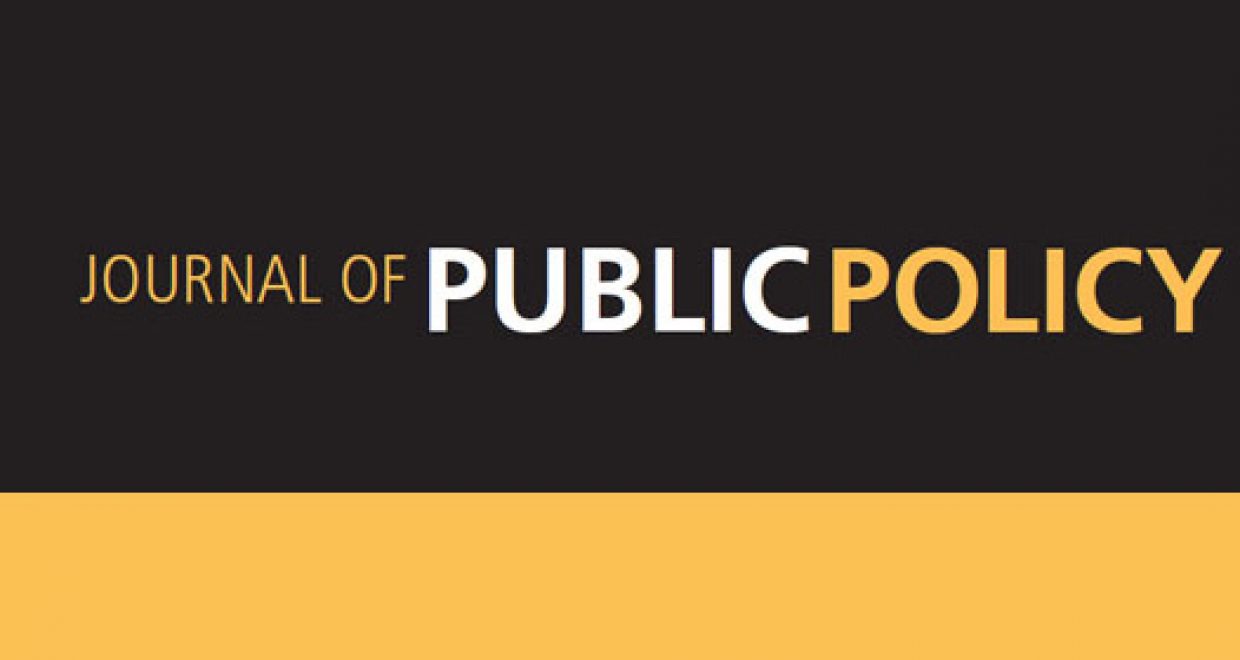Never Let a Serious Crisis Go to Waste: The Introduction of Supplemental Carbon Taxes in Europe
Over the past decades, a growing number of countries have introduced carbon taxes to lower carbon emissions and fight climate change. Previous research indicates that several factors contribute to the adoption of carbon taxation and other forms of carbon pricing. Accordingly, institutional factors, such as electoral systems and neo-corporatist structures, government partisanship and the economic context all play a role in the introduction of carbon taxes. But how do political, economic and environmental factors actually work together in the process leading to carbon taxes?
This blog post provides an answer to this question by presenting the key findings of our open access article “Never Let a Serious Crisis Go to Waste: The Introduction of Supplemental Carbon Taxes in Europe” published by the Journal of Public Policy.
Focusing on the six Western European countries (France, Iceland, Ireland, Portugal, Spain, United Kingdom) belonging to the second wave of carbon taxation, the article investigates how the interplay of dynamic political and socioeconomic context factors, such as government partisanship, policy entrepreneurs, fiscal and environmental pressure, determines the timing of policy adoption. Notably, the carbon taxes in each case had a supplementary character, as the six countries already participated in the EU Emissions Trading System (EU ETS) and faced internationally binding emission reduction targets. To account for conjunctural causality, the article applies the innovative approach of combining the Multiple Streams Framework (MSF) with Qualitative Comparative Analysis (QCA). This approach allows us to uncover the conditions under which the adoption of carbon taxation becomes likely. Additional case studies on Ireland and Portugal serve to illuminate the policy process and analyze the reform efforts by policy entrepreneurs under favorable as well as unfavorable conditions.
The article yields three key findings. First, the QCA confirms previous findings that fiscal crises provide favorable conditions for the adoption of carbon taxes. According to our results, heightened fiscal pressure may even have been a necessary condition for policy adoption in the six countries. However, fiscal pressure is not sufficient for this outcome. Thus, our second finding is that the introduction of carbon taxation becomes most likely when high fiscal pressure coincides with governments receptive to environmental issues, e.g. when greens parties are part of the government. In other words, the conjunction of push and pull factors provides a fertile ground for policy adoption. Notably, environmental pressure in terms of missed emission targets proves to be less important than fiscal pressure in this context. Finally, the case studies demonstrate that the prospects of ‘green’ policy entrepreneurs pushing for carbon taxation are strongly determined by their standing within the government.
To what extent will these findings apply to other parts of the world? Research on carbon pricing indicates that conditions in Western Europe are generally more favorable to the introduction of carbon taxes than in less affluent regions such as Southeast Asia and South America. Nevertheless, research also indicates that some of our findings can be applied to those regions. As global studies demonstrate, the impact of fiscal and economic crises on the adoption of carbon taxation is not restricted to Europe. However, since green parties generally play no major role in developing countries, other political actors, such as influential political entrepreneurs inside the government, are needed to overcome the opposition to carbon pricing. Finally, the international awareness of the necessity for stronger climate policies is still rising which is why initiatives for carbon taxes are supposed to be more and more driven by environmental considerations in the future.
Moving beyond climate policy, our article demonstrates that the combination of MSF and QCA can help to better understand the timing of reforms across countries, promising insights on cross-country reform patterns not accessible through other approaches. The MSF offers the theoretical framework to capture the interplay of various structural and political factors, while QCA presents the fitting method to grapple with conjunctural causality. Complemented by well-selected case studies, this approach can thus be of use to public policy scholars in various policy fields.
– Fabio Bothner; Svenja Marie Schrader; Frank Bandau, all University of Bamberg and Nicole Holzhauser, Technische Universität Braunschweig
– The authors’ Journal of Public Policy article is available open access.






